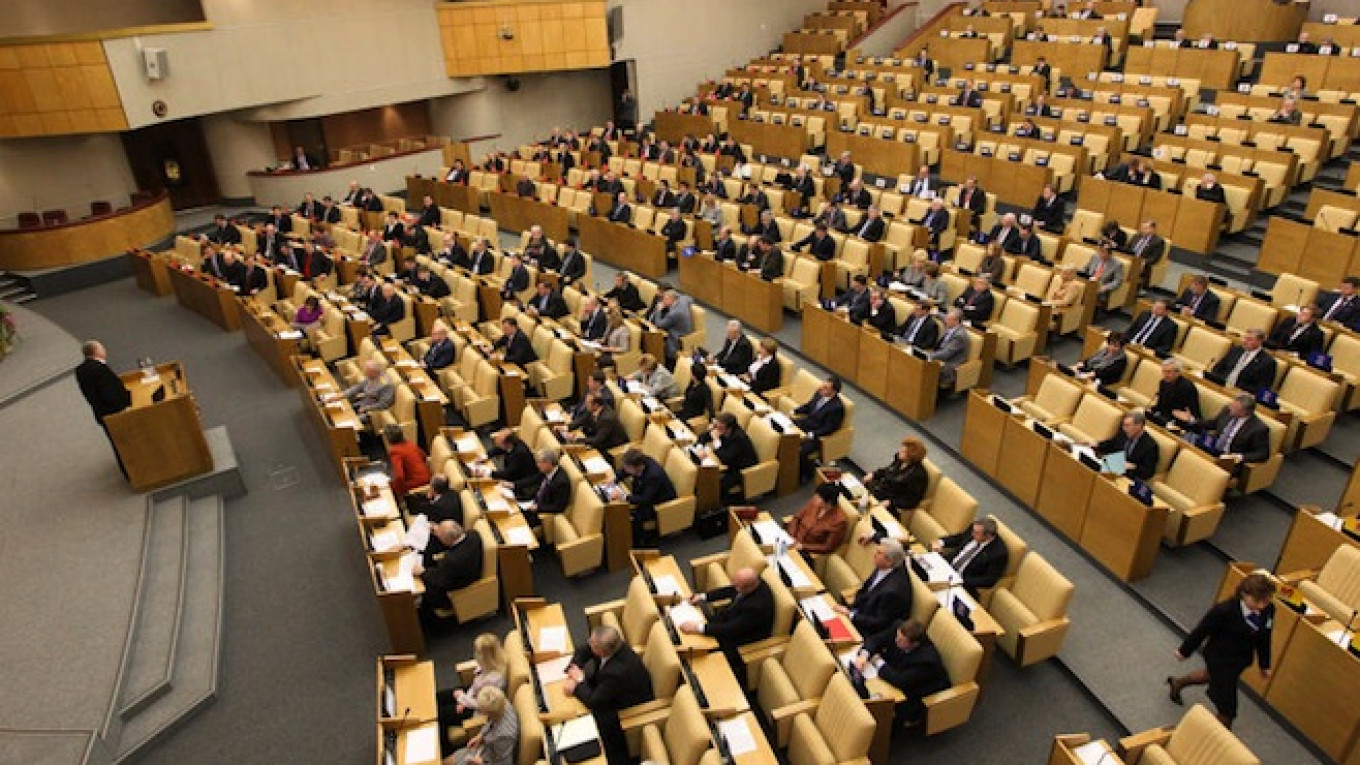The State Duma on Wednesday passed in its first reading a widely criticized bill known unofficially as the "Rotenberg law," which seeks to provide financial compensation to Russian companies and citizens hit by Western sanctions over Russia's role in the Ukraine crisis, news site Gazeta.ru reported.
To become law, the bill will have to navigate two more readings before moving to Russia's upper parliament and President Vladimir Putin's desk.
The government first sneered at the proposed law when it was proposed in April, but did a U-turn last month soon after sanctioned billionaire and Putin pal Arkady Rotenberg saw four of his Italian villas seized due to EU sanctions.
Liberal pundits quickly concluded that the law had received the Kremlin's green light on account of Rotenberg's troubles and dubbed the legislation the "Rotenberg law," although Rotenberg later said he had no intention of taking compensation from the state.
Many other wealthy individuals and companies could benefit under the law. Some of Putin's most powerful and wealthy allies have been sanctioned by either the U.S. or EU, including Rosneft head Igor Sechin and billionaire Gennady Timchenko. In mid-September, the state said a fund to provide support for sanctioned companies would be set up, stocked in part with money diverted from the public pension system.
The law did not pass without debate however: 233 deputies voted in favor, while 202 voted against. Finance Minister Alexei Ulyukayev slammed the law ahead of its passing, saying in an interview on television channel Rossia-24 that it effectively meant the state would insure foreign assets. "There is no better way to create capital outflow than passing or even discussing such legislation," he said.
The Finance Ministry estimates that Russia's capital outflow will hit $120 billion, or 6 percent of GDP. In recent months growth projections for Russia's economy have shriveled as a slowing economy, falling oil prices, extravagant budget promises and Western sanctions all take their toll.
Contact the author at s.skove@imedia.ru
A Message from The Moscow Times:
Dear readers,
We are facing unprecedented challenges. Russia's Prosecutor General's Office has designated The Moscow Times as an "undesirable" organization, criminalizing our work and putting our staff at risk of prosecution. This follows our earlier unjust labeling as a "foreign agent."
These actions are direct attempts to silence independent journalism in Russia. The authorities claim our work "discredits the decisions of the Russian leadership." We see things differently: we strive to provide accurate, unbiased reporting on Russia.
We, the journalists of The Moscow Times, refuse to be silenced. But to continue our work, we need your help.
Your support, no matter how small, makes a world of difference. If you can, please support us monthly starting from just $2. It's quick to set up, and every contribution makes a significant impact.
By supporting The Moscow Times, you're defending open, independent journalism in the face of repression. Thank you for standing with us.
Remind me later.


